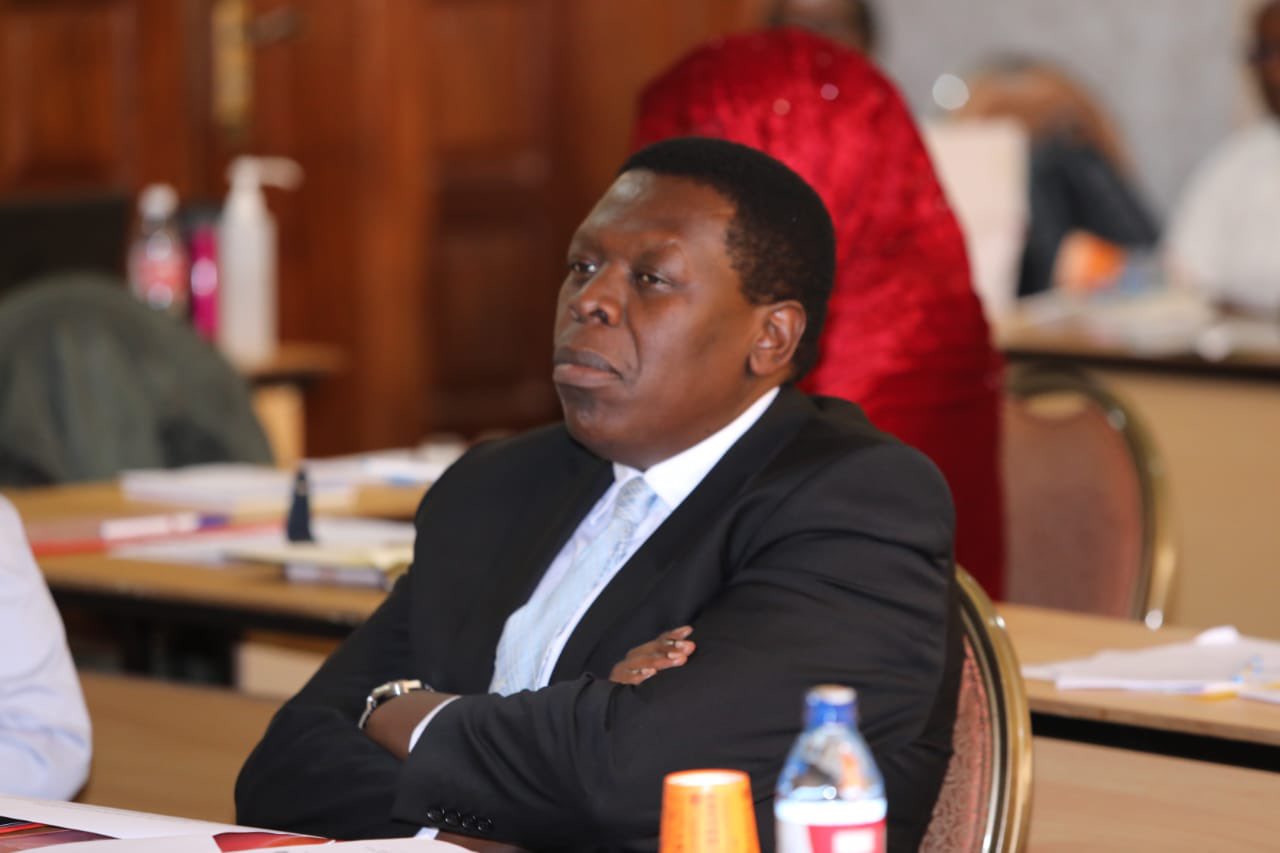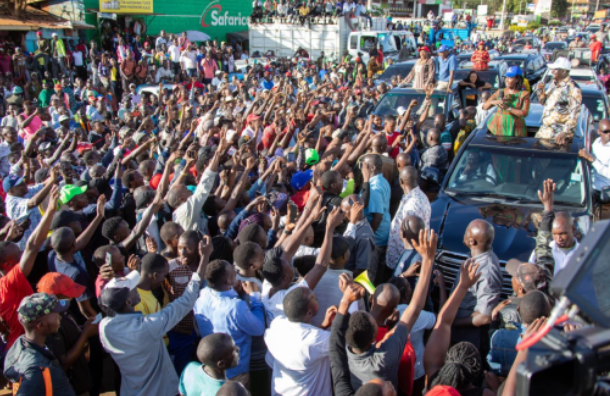Celebrated writer and scholar Ngũgĩ wa Thiong’o’s controversial play ‘I Will Marry When I Want (Ngaahika Ndeenda)’ is set to make a comeback to the Kenyan theatres more than 30 years after it was banned.
The play is set to be staged in both Kikuyu and English from May 12 to May 29 at the Kenya National Theatres.
Some of the prominent themes in the play are hypocrisy, corruption of religion, capitalism, and politics.
Nairobi Performing Arts studio director Nash Stuart told Word Is the play will mark the first time it being staged in English.
It will be starring Kenyan thespians like Martin Githinji, Angel Waruinge, Nice Githinji, and Annestella.
“I am very excited to be directing a play by an iconic Kenyan writer,” he said.
“This one has such a unique place in Kenya’s history and has not been done for more than 30 years. It is also the first-ever production at the Kenya National Theatre.”
Speaking from California, Ngũgĩ hailed the play’s comeback.
“I want to start by congratulating you, the artistes and performers of Nairobi Performing Arts studio for reviving or redoing the play,” he said.
“‘I will marry when I want’ became famous in the whole world but unfortunately, it was stopped by the Kenyan government on November 11, 1977.”
Ngũgĩ recounted how a month later, he was put in detention at the Kamiti Maximum Security Prison, where he spent a year.
“What you have done is reconnected with a living history by becoming part of the living history.”
He then wished them well and hoped that Kenyans will enjoy the play.
“I want to thank you very much for doing this and I hope you enjoy performing it and the audience as well. I bless you for that.”
The play was banned after just six weeks of stage plays, following what was termed as portrayal of post-colonial struggles.
The play was again banned in 1990.
Prof Ngugi came to visit us here in Toronto in 1991 and gave a speech to mark the African Liberation Day in Toronto.
Ngugi talked about what was then called the “New World Order” by President George Bush.
“The attempts by the West to create new world orders in the various phases of history have always been at the expense of the peoples of the Third Word” Ngugi said in his opening remarks.
Addressing a lively audience of 500 people, who gathered at Brickford Park High School, Ngugi asserted that African people have to look back in history and comprehend the old order before they can deal with the new arrangement coming from Washington.
“There has always been two world orders,” said Ngugi. “The reactionary world order and the revolutionary world order” he added amidst applause from the audience.
Looking back at history, Ngugi pointed out three important dates perspectives on the pattern of exploitation and brutality that has marked the relationship between the African peoples and the West.
These dates, according to Ngugi are 1498, the year of Vasco da Gama’s trip around the African coast. 1884, the year of the Berlin Conference, and 1990 when George Bush declared the intention a new world order with its headquarters in Washington.
“Vasco da Gama’s adventures in the coastal cities of Africa was followed by a world order of slavery and the slave trade” said Ngugi adding that the two dominant powers in Europe at the time, Spain and Portugal had the intentions of dividing the entire African continent between themselves.
Giving examples of disunity between various African communities, Ngugi lamented the ease with which those who wanted to exploit African resources and peoples used such opportunities to further their interests.
“The trade in blood” said Ngugi referring to the slave trade, “was very much dependent on our disunity.”
Soon after slavery and the slave trade became impossible due to slave revolts, a new plan to subjugate the African people and rob them of their material resources was hatched.
It boiled down to the Berlin Conference in 1884 when Europe was trying to avoid a full-fledged war over the control of the countries that later came to be known as the Third Word.
“In the Berlin Conference,” said Ngugi, “the European powers literally curved Africa and allocated themselves areas of domination” adding that what followed the Berlin Conference was ” the order of colonial slavery at the economic, political and cultural levels.
But African people did not accept this lying down. They fought back every inch of the way and in 1917 got a formidable ‘ally’ referring to the Russian Revolution which shattered the capitalist world order and gave concrete support to the anti-colonial struggles in Africa, Asia, Central America, and the Caribbean nations.
I always joke with my son about the Berlin Conference because I tell him once Europe slashed up Africa you could wake in in a situation where your house is in one country like Kenya and your bedroom is in another country like Uganda, Somalia, or Tanganyika. How does that work I ask him and he tells me to shut up.
“Once again European powers working in concert with the United States of America are coming together to strategize on the means and methods of keeping Africa and the Third World under their control.”
In conclusion, Ngugi pointed out the strategies that peoples of Africa and the Third World in general must adopt to confront the new mischief from Washington and Europe.
“Our biggest weapon is the weapon of unity in the struggle to achieve popular democracy for our people. We must struggle against all forms of neocolonialism in Africa and elsewhere.
“We must strive to maximize whatever unites us and minimize whatever divides us……. In unity lies strength and remember I am not talking about unity for its own sake but rather unity in the very process of struggle.
“We must seek the unity of those who are insulted, those who are humiliated, and those who are injured. That way we achieve the revolutionary world order in which power and wealth belong to the people and not the exploiters of the world.”
That was Prof Ngugi speaking to us in Toronto some years ago. What a gift he is to every Kenyan.
Adongo Ogony is a Human Rights Activist and a Writer who lives in Toronto, Canada








